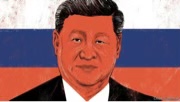|
https://www.amazon.com/Complete-Aubrey-Maturin-Novels-volumes/dp/039306011X
|
|
|
|

|
| # ? May 27, 2024 13:27 |
|
Palladium posted:how do you manage to read so many books 1. I set aside a chapter a day for any one book that I'm reading at the moment, or if chapters are too long, a set number of pages, like 20 pages a day for a 300-page book. I only don't do these on the weekends. 2. if it's a particularly light work-day I might read two sections, or one section each from two different books 3. and then I also have an audiobook that I play every time I'm driving, or doing chores 4. and then I also have a book on my phone that I read when I'm waiting around on something, although this one has been very slow lately since nowadays I'm usually posting or playing on my Switch if I'm just otherwise idle AND away from my computer I don't know if it's a particularly novel trick, but simply having a point where you can stop reading, but committing to doing that one section every day, adds up to a lot of books over time. Last year's total was 34, and I'm up to 19 so far this 2022.
|
|
|
|
For me I just rely on reading as the purest sort of distraction/bringer of joy/destroyer of bad thoughts, esp now that I'm staying mostly sober. I'm basically reading at all possible times I could be reading. In the jacuzzi. In between laps in the pool. While I'm walking anywhere, waiting anywhere. Been a rough year for me, lotta loss, so I basically have to read. Helps that I have a Kindle with my thousands of books on it and it's waterproof and sturdy as gently caress, and that I'm an insane book pirate. Feel like I'm reading 6-7 books at anytime, I've had an unhealthy book juggling habit since I was a kid but it's just how I do things. Think I've finished like ~25, so far in 2022, mostly history, lotta Daniel Kehlmann and Alfred Duggan's historical fiction (underrated dude imo, Knight With Armour is hilarious) but I don't really keep track of the numbers. Just added some interesting new adds off of this list, unfortunately a lot of it is military history n I cant say most of them are modern history https://acoup.blog/book-recommendation-list/ in terms of modern history rn I'm reading Iran: A Modern History and Set the Night on Fire: L.A. in the Sixties. Majorly recommend the latter, should be required reading especially if you're Californian. Just a great history from like, 1960-1973 on the history of leftist/resistance movements in Southern California, from the sit ins to Corita Kent to Ron Karenga to the Sunset strip curfew riots and on and on. Punkin Spunkin has issued a correction as of 17:41 on Jul 31, 2022 |
|
|
|
Anyone have any resources about the Bandung Conference? https://en.wikipedia.org/wiki/Bandung_Conference I'd like to learn more about it.
|
|
|
|
Trabisnikof posted:Anyone have any resources about the Bandung Conference? The Jakarta Method mentions it 41 times. there’s a lively discussion thread for the book here.
|
|
|
|
Trabisnikof posted:Anyone have any resources about the Bandung Conference? The Darker Nations is about the history of third world collectivism. Only one chapter on Bandung itself, but a lot of background on the history leading up to it and the fallout. The author is Vijay Prashad, and he's written a few books on connected topics as well.
|
|
|
|
Dameius posted:Has anyone invaded Russia from the east and won? The Germans in WWI
|
|
|
|
https://mobile.twitter.com/martyrmade/status/1552109866201731072
|
|
|
|
Punkin Spunkin posted:For me I just rely on reading as the purest sort of distraction/bringer of joy/destroyer of bad thoughts, esp now that I'm staying mostly sober. I'm basically reading at all possible times I could be reading. In the jacuzzi. In between laps in the pool. While I'm walking anywhere, waiting anywhere. Been a rough year for me, lotta loss, so I basically have to read. Helps that I have a Kindle with my thousands of books on it and it's waterproof and sturdy as gently caress, and that I'm an insane book pirate. Feel like I'm reading 6-7 books at anytime, I've had an unhealthy book juggling habit since I was a kid but it's just how I do things. Think I've finished like ~25, so far in 2022, mostly history, lotta Daniel Kehlmann and Alfred Duggan's historical fiction (underrated dude imo, Knight With Armour is hilarious) but I don't really keep track of the numbers. I advise against reading and walking. Last time I did that I smacked my forehead on a gas station price sign
|
|
|
|
Is there a good go to book about the 1813 battle of Leipzig/battle of the nations?
|
|
|
|
|
hey goons, I am working on a project and need some help. What is, for your money, the worst thing McDonald’s has ever done? business practise or knowingly endangering customers/workers?
|
|
|
|
the mcrib
|
|
|
|
Calico Heart posted:hey goons, I am working on a project and need some help. What is, for your money, the worst thing McDonald’s has ever done? business practise or knowingly endangering customers/workers? Sold to Ray Crock
|
|
|
|
Calico Heart posted:hey goons, I am working on a project and need some help. What is, for your money, the worst thing McDonald’s has ever done? business practise or knowingly endangering customers/workers? obviously it's the milkshake repair scam also slash and burn the amazon but I actually don't know if the clown or Burger King is worse here
|
|
|
|
So uhhh, did this actually happen or nah?
|
|
|
|
Orange Devil posted:So uhhh, did this actually happen or nah? no
|
|
|
|
what actually did happen was America's own atom bomb tests where they put African Americans closer to the bomb than whites
|
|
|
|
Orange Devil posted:So uhhh, did this actually happen or nah? Seems like it didn't, but don't let this sensational but fake story distract you from the actual environmental devastation and health damage done by France's nuclear testing in Algeria.
|
|
|
|
Agean90 posted:what actually did happen was America's own atom bomb tests where they put African Americans closer to the bomb than whites the US also forced Pacific island communities out of their homes so that they could be turned into bomb test sites, then dumped them on nearby islands that didn't have any food sources and left them to starve to death (this is only a slight exaggeration because they only became severely malnourished and were eventually evacuated to yet another uninhabited island with insufficient food sources, rather than all dying. The US also knowingly irradiated populated islands with further bomb tests and then secretly used their inhabitants to study the effects of radiation poisoning. You can read some details here) vyelkin has issued a correction as of 15:31 on Aug 2, 2022 |
|
|
|
god bless America 
|
|
|
|
Yeah but that I all knew, the French stuff would've been new info to me.
|
|
|
|
Orange Devil posted:So uhhh, did this actually happen or nah?
|
|
|
vyelkin posted:the US also forced Pacific island communities out of their homes so that they could be turned into bomb test sites, then dumped them on nearby islands that didn't have any food sources and left them to starve to death Yeah the Castle Bravo stuff was on par with the worst poo poo Nazi scientists ever did: quote:The damage done by Alvin Graves and the bomb under his command
|
|
|
|
|
R. Mute posted:do you think the french could've contained themselves that long to capture an algerian (alive), tie them up, drag them all the way to the testing grounds, tie them up to a pole, put a sack over their head and then blast them with a nuke rather than just letting the national spirit of racism take the wheel and beat that algerian to death the second they saw them? Maybe?
|
|
|
|
Calico Heart posted:hey goons, I am working on a project and need some help. What is, for your money, the worst thing McDonald’s has ever done? business practise or knowingly endangering customers/workers? All the other things are worse and operate on bigger scales and budgets. On a more personal/limited scope scale the hot coffee lawsuit was supremely hosed up.
|
|
|
|
Calico Heart posted:hey goons, I am working on a project and need some help. What is, for your money, the worst thing McDonald’s has ever done? business practise or knowingly endangering customers/workers? Hiring loggers with chainsaws to kill everyone from a small Indigenous people that was blocking attempts to build beef farms in the Amazon. Either that, or cancelling the McPizza.
|
|
|
|
If never seen a better example of chickens coming home to roost than the coup and subsequent unpersoning of Mayor McCheese
|
|
|
|
Birdie was the first to go, thrown in a cold river with a broken milkshake machine chained to her talons. The Fry Kids starved to death in front of a railway station, "PLEASE HELP" written on a cardboard sign in crayon that sat on the concrete in front of their emaciated bodies. Mayor McCheese disappeared into a Playplace ringed with a fence topped by barbed wire. The Hamburglar was dragged from his bed at night and shot in front of his children. Grimace's signature on his confession was written in a hand so shaky that it was almost illegible. His quavering, high-pitched testimony at the Trial was what doomed everyone else. I saw it on McDonald's state TV. All these bodies, all these lives, all merely speed bumps on the road to ultimate power for our Leader. His curly hair is stained red with the blood of the innocent. His gloves are dyed the sickly yellow of corruption. If I could McCry, I would, but my tears have run out. Soon I will join the others at the great McCafé in the sky.
|
|
|
|
can anyone give me a rundown of just what the deal was with soviet defectors ive gotten the impression through cultural osmosis over the years that basically everyone wanted to defect to the west from russia because communism was just so terrible and capitalism was so awesome but im not sure how much of this impression is based on actual history rather than propaganda
|
|
|
|
Chamale posted:Hiring loggers with chainsaws to kill everyone from a small Indigenous people that was blocking attempts to build beef farms in the Amazon. Any more info/link on this?
|
|
|
|
Some Guy TT posted:can anyone give me a rundown of just what the deal was with soviet defectors ive gotten the impression through cultural osmosis over the years that basically everyone wanted to defect to the west from russia because communism was just so terrible and capitalism was so awesome but im not sure how much of this impression is based on actual history rather than propaganda Some people did legitimately defect because they thought life would be better under capitalism. Igor Gouzenko, for example, supposedly defected because he had spent several years living outside the Soviet embassy compound in Ottawa and enjoyed his life in Canada, so when he was told he and his family were to return to the USSR they defected instead. For a lot of other defectors it was based not on firsthand experience but on dissatisfaction with their lives in the USSR and the high reputation of life under capitalism even if the reality didn't always live up to their expectations. There's a recent article about this focusing on defectors to the US in the 1950s: Benjamin Tromly, "Ambivalent heroes: Russian defectors and American power in the early Cold War," Intelligence & National Security 33.5 (2018), 642-658. The author summarizes staple views of defectors' motivations and his new revision as follows: quote:The fates of Pirogov and Borzov encapsulate the difficult position of defectors in the Cold War. In the Cold War geography, moving from one bloc to the other was seen as an ideological act, one that signified either righteous protest (in the West) or betrayal (in the East). Accordingly, defectors such as Pirogov and Borzov were depicted in Western media as heroic figures whose flight represented a rejection of totalitarianism in the name of freedom. To some extent, scholarly work of defection has borne the imprint of this ideology-centric and normative view of defection. Vladislav Krasnov, himself a defector from the 1960s, states in a detailed study that anti-Soviet ideology was the major motivation guiding Cold War defectors of the previous decade.[ 15] Basically, the Cold War context meant that defectors were seen in ideological terms, as striking a blow for freedom or as traitors to socialism, but most of them were just opportunists who saw a chance for self-preservation or self-advancement and took it, and often ended up disappointed and disillusioned if their lives didn't actually improve in the way they had hoped after defection. Of the two guys mentioned in the introduction, for example, Borzov and Pirogov, for instance, Borzov returned to the USSR six months after defecting because he got homesick and missed his wife, and Pirogov was denied US citizenship in 1955 because he had been a member of the Komsomol and then fired from his $300/month job with the CIA in 1956 because he only showed up to collect a paycheque and had no interest in actually running the anti-soviet emigre organization they had put him in charge of. Tromly does some analysis of records from interrogations conducted when defectors first defected to try and get at their motives, and has this to say about it: quote:The interrogation records provide relatively unvarnished information on the defectors, but they are nonetheless complex sources that must be read against the grain. For a host of reasons - the fact that defectors usually arrived without personal documents, the closed nature of the USSR, and Soviet propaganda designed to discredit defectors as traitors - powerholders in the West often had virtually no verifiable information on the defectors’ backgrounds or their flight from the Soviet bloc. Indeed, existing US intelligence on the Soviet Union was so patchy that interrogators could rarely compare testimonies to a body of known facts - that is, except when defectors made egregious factual errors such as claiming to have served in a military unit that had never been stationed in Germany.[ 32] Not surprisingly, the interrogators sometimes made serious mistakes, such as when an Armenian resident of France convinced the Peripheral Reporting Unit that he was a Soviet defector.[ 33] The problem here is that the limits to interrogators’ knowledge apply to that of later historians as well. If interrogators on the ground frequently were unable to verify defectors’ accounts, why should historians revisiting the exchange decades later take the latter on faith?
|
|
|
|
what about later periods of the cold war post stalin were defectors motivated by different factors by that point or were there just fewer of them despite the vague historical discourse implying that there was a steady stream of defectors throughout the cold war
|
|
|
|
the 31% who defected for some pussy were real rear end dudes.
|
|
|
|
sounds like the ussr could have stopped a fifth of all defections with just a few more pizza parties
|
|
|
|
ive got another late cold war question to what extent does gorbachev cause the soviet union to collapse versus the soviet union collapsing causing gorbachev to come to power alternately is my whole premise of gorbachev being a uniquely important factor to the soviet union collapsing flawed
|
|
|
|
I’m thinking the Sino-Soviet split may have been the most damaging thing.
|
|
|
|
Some Guy TT posted:ive got another late cold war question to what extent does gorbachev cause the soviet union to collapse versus the soviet union collapsing causing gorbachev to come to power if you watch For All Mankind you'll learn his free market policies turned the USSR into an economic powerhouse that expanded their reach and influence in the late 80s and early 90s
|
|
|
|
Some Guy TT posted:ive got another late cold war question to what extent does gorbachev cause the soviet union to collapse versus the soviet union collapsing causing gorbachev to come to power the soviet bloc was probably doomed regardless between the underdevelopment of eastern europe members and the whipsaws in politics from stalinism to collective leadership to a return to soft stalinism making the citizens of these states extremely unhappy with communsim. the soviet union probably would have been able to survive if andropov had lived, charting a dengist-lite path of some economic liberalism under party and GOSPLAN guidance with a willingness to crack down on nationalism and those who pushed or wanted to push liberalization too far forward ala tiananmen. gorbachev on the other idea was a blunderer who understood neither the inner workings of the soviet system nor the forces his programs were unleashing within the soviet union and its satellites. that said, there was not much, if any, opposition to gorbachev in the politburo until the second half of the 80s when it was clear his liberalization programs weren't going as well as had been hoped. i would charge the entire politburo with indecisiveness and incompetence with gorbachev being the most indecisive and incompetent
|
|
|
|
Raskolnikov38 posted:the soviet bloc was probably doomed regardless between the underdevelopment of eastern europe members and the whipsaws in politics from stalinism to collective leadership to a return to soft stalinism making the citizens of these states extremely unhappy with communsim. the soviet union probably would have been able to survive if andropov had lived, charting a dengist-lite path of some economic liberalism under party and GOSPLAN guidance with a willingness to crack down on nationalism and those who pushed or wanted to push liberalization too far forward ala tiananmen. gorbachev on the other idea was a blunderer who understood neither the inner workings of the soviet system nor the forces his programs were unleashing within the soviet union and its satellites. that said, there was not much, if any, opposition to gorbachev in the politburo until the second half of the 80s when it was clear his liberalization programs weren't going as well as had been hoped. i would charge the entire politburo with indecisiveness and incompetence with gorbachev being the most indecisive and incompetent yeah the basic problem is that by the mid-80s the Soviet system (including the satellites in Eastern Europe, which were heavily subsidized by Soviet oil exports) was entering a significant economic crisis that needed something to be done about it, and with the old guard literally dying off Gorbachev was pretty much the only leadership contender offering to actually try and do something, but then what he tried to do didn't work. He liberalized and decentralized Soviet politics in a way that unleased a lot of pent-up dissent and grievances while also severely restricting the ability of the central state to do anything about it (both in the repressive stamp-down-on-dissent sense and in the positive help-people-out sense), and he combined that with economic reforms that got people's hopes up about revitalizing the system but then failed to actually accomplish that. To answer your initial question, SGTT, it's both. The Soviet system was in crisis which led to the desire for a real reformer who would at least try to revitalize it, but Gorbachev's reforms didn't solve the existing problems and in the process unleashed new problems that they weren't prepared for. Another big thing to remember about the late-socialist USSR is that it was heavily reliant on income from oil exports. Check out this graph:  The high price of oil in the 70s and early 80s and the USSR being one of the world's biggest oil exporters brought in a lot of foreign trade income, which the Soviets used to subsidize much of their state spending. Internationally that meant subsidizing Eastern Europe and domestically it meant subsidizing personal consumption. There's a stereotype that the Soviets were spending all that money on weapons, but actually the number one thing oil revenue was spent on was food imports, which kept stores full and prices low. See how the price of oil collapsed in the mid-80s, right around the time Gorbachev came to power? That's a big cause of the economic crisis that people remember as the Soviet system failing. The low price of oil meant the Gorbachev-era USSR had to cut subsidies to Eastern Europe and subsidies on domestic consumption, which made Eastern Europe's debt crisis worse and contributed hugely to the shortages and long lines that people associate with the final years of the USSR. Maybe a more competent or better organized series of reforms could have overcome this problem, but it's an example of the kind of fundamental imbalances that any leader would have faced coming to power when Gorbachev did. Incidentally, one of the biggest continuities across 1991 is the petrostate nature of the USSR/Russia. The 70s are remembered as an era of increasing living standards because that's when oil was high. The 80s are remembered as a time of stagnation because that's when oil prices stopped rising and started falling. The 90s are remembered as a time of collapse and crisis because that's when oil was cheap. The 2000s are remembered as a time of renewed prosperity (leading to social support for Putin) because that's when oil prices went up again. And so on. I even read an article once saying we should stop thinking about the USSR as an ideologically distinct socialist state and more as just a typical petrostate with a socialist veneer, which I think is overstating the case, but oil prices have been very strongly linked to the fortunes of the leadership in Moscow since the USSR became a major oil exporter in the 60s and 70s.
|
|
|
|

|
| # ? May 27, 2024 13:27 |
|
does a hypothetical soviet state in an alt eighties where nuclear has replaced petro as the worlds main energy source do better or worse than the actual soviet union
|
|
|


































